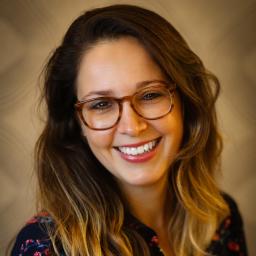On January 6th, I watched the events at the Capitol unfold and admittedly felt paralyzed. As a partner to faith communities in developing civic education, I wanted to offer wisdom to our teachers and promote confidence in our democratic institutions to students, yet acknowledge the gravity of the day and a sense of shattering that revealed how fragile our system of government can be.
When I had collected myself, I reached out to our educators to offer a few concrete resources, extend my support, and note the challenge the next day would bring as they navigated students’ responses to our evolving political world—a daunting role they have undertaken for quite some time. As responses came in, I was—as I frequently am—bowled over by the teachers’ bravery and creativity. Across our interfaith, cross-partisan network, the stories from classrooms were astonishingly moving, and reflective of the ways in which educators can weave together civic education with religious teachings.
A history teacher at an all-boys yeshiva shared honest reflection through the framework of the war of the Chashmonaim and communal rehabilitation following the desecration of the Temple, with a focus on the עַל הַנִּסִּיםprayer. He referenced a passage from an 1838 Abraham Lincoln speech which warned the members of the United States that destruction of the union is most likely to arise from within: “At what point is the approach of danger to be expected? If it ever reach us it must spring up amongst us; it cannot come from abroad, I answer. If destruction be our lot we must ourselves be its author and finisher.” To help students feel accountable, the teacher encouraged them to consider how lessons from the intricate process of rebuilding the Temple illuminate an avenue for fortifying, if not restoring, the foundation of American democracy.
The director of humanities enrichment at an all-girls yeshiva created a schoolwide program in which students were invited to join a reflective discussion: What do you know? What questions do you have about what happened? What are your concerns? Together, they studied quotes from leaders on the peaceful transfer of power: Washington in 1783, Jefferson in 1800, Bush and Gore in 2000, and McConnell, Pence and Schumer in 2021. Students were asked to consider the values reflected in these statements and how they resonate with their values. In looking ahead, students participated in an interactive art project, articulating on Post-its their responses to the prompt, “As an American I can…” Their notes were shared on a public wall for all to see.
A Muslim educator in our Civic Spirit community who leads a civic fellowship for students from Islamic schools introduced an important challenge for her group. She asked the students to use the iceberg visual exercise, which she had learned at the Civic Spirit Summer Institute, to imagine the values, concerns and fears of the individuals who engaged in the Capitol insurgence, along with those who sought to defend the Capitol. Her goal was to encourage the fellows to understand how values impact emotions and outlook, which in turn drives behavior. Though recognizing how the Capitol event was morally charged, this teacher bravely equipped her students with the urgent civic skills of empathy, discourse, and solution-focused thinking.
Each of these educators modeled components of a pedagogical approach we have found to be most effective when tackling contentious topics: engage a student’s heart, mind and hands in processing current events and fostering their ability to own their role in shaping the future. Our organizational theory has always been the same: in preparing the next generation to participate in democracy, we must look to the wisdom of our faith traditions.
How do we prepare our Jewish young adults to come of age? We ask them to study with an expert, consider how the words of Biblical Hebrew link to their modern lives, and demonstrate competency by leading prayers, reading a verse, and teaching a message of Torah.
Similar to the inheritance of a bnai mitzvah, we believe that one cannot sufficiently be asked to participate in the democratic public square without the study of founding texts, practice of civic skills, and connection to community and country. By drawing from their expertise in preparing students to be engaged members of the Jewish community and exploring the rituals we celebrate to entrust the traditions and values of Judaism, day school educators can acknowledge the discord on our national stage and play a pivotal role in helping students embody the responsibilities of citizenship—as Americans, Jews and American Jews.



